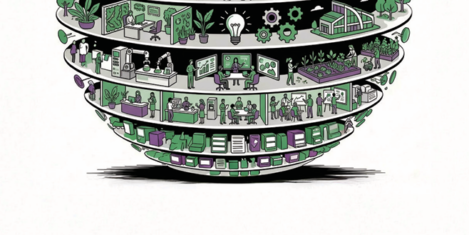July 9, 2016
Perils of sitting + Meeting change with resilience + Root causes of stress 0
 In this week’s Newsletter; Gary Chandler argues we are witnessing a new era for office design; Neil Franklin wonders who fares best when working remotely; Mark Eltringham unpicks the facts from fiction on the dangers of sitting; suggests the ways we can break ourselves out of groupthink and delves into a report which suggests order and disorder are perfectly functional ways for firms to operate. The overwhelming majority of UK employees are working beyond their contracted hours; employers’ views on the causes of workplace stress differ from employees; managers struggle with the fall-out from crises; and despite the prospect of a female PM, the boardroom remains out of reach for many business women. Download our new Briefing, produced in partnership with Boss Design on the link between culture and workplace strategy and design; visit our new events page, follow us on Twitter and join our LinkedIn Group to discuss these and other stories.
In this week’s Newsletter; Gary Chandler argues we are witnessing a new era for office design; Neil Franklin wonders who fares best when working remotely; Mark Eltringham unpicks the facts from fiction on the dangers of sitting; suggests the ways we can break ourselves out of groupthink and delves into a report which suggests order and disorder are perfectly functional ways for firms to operate. The overwhelming majority of UK employees are working beyond their contracted hours; employers’ views on the causes of workplace stress differ from employees; managers struggle with the fall-out from crises; and despite the prospect of a female PM, the boardroom remains out of reach for many business women. Download our new Briefing, produced in partnership with Boss Design on the link between culture and workplace strategy and design; visit our new events page, follow us on Twitter and join our LinkedIn Group to discuss these and other stories.



































January 29, 2026
AI isn’t turning robots into humans, it’s turning humans into robots.
by Stephanie Fitzgerald • AI, Comment, Wellbeing